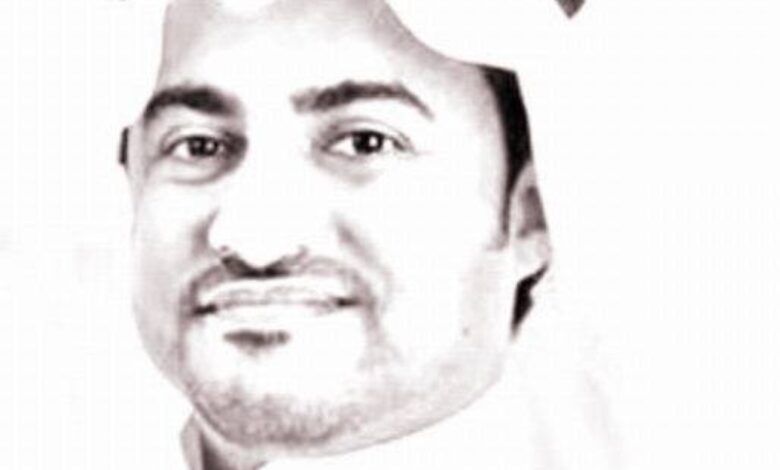
It seems that the financial situation of writers, writers, and journalists pushes them to be optimistic about book fairs, as they are a place for paid invitations, travel and transportation tickets, and housing and food. However, the closure of the Riyadh Book Fair this year, the door to rewards, and the austerity in some expenses related to invitations, in addition to the weakness of the accompanying cultural programs, has angered some. “Okaz” polled the opinions of a number of intellectuals, to convey their vision, on several issues and topics that tend to be brought up at the wedding of the best groom. Media advisor Abdulaziz Al-Eid believes that: It must be recognized that any seasonal book fair moves from one city to another; It requires effort starting from scratch, which makes the experience poor and full of comments that confirm the public’s concern for the quality of the exhibition, and just as its sales reflect the purchasing power of its visitors, the level of representation of the organization must be at the height and reputation of the Kingdom, which gave culture in its Vision 2030 a high status in all its branches.
He added that this year’s exhibition took place at Princess Noura University, and added traffic to the university’s traffic, whether through cars or buses, or through the university’s metro stations, pointing out that as the days pass, some errors can be corrected, especially in frequency transportation, and allocate a route for buses, so that they are not stuck in the traffic of visitors’ cars.
Al-Eid explained that the visitor feels comfortable as soon as he enters the exhibition, due to the wide corridors, excellent air conditioning, clean restrooms, and sufficient prayer halls, stressing that prices can be controlled, just like controlling digital sales, as cash sales are no longer permitted, while he praised the efforts of the guides in the exhibition halls. He called for a review of the cultural program to prevent the repetition of names, and considered the reduction of rewards, the lack of hospitality, including food, meals, and tickets, and the prevention of participation rewards as completely unbecoming of the reputation of the exhibition, which cost millions of riyals, and stops at amounts not exceeding a million, especially since guests from within Riyadh will only receive the participation reward. He added: I heard more than one guest saying, “They want me to participate for free!!”
Al-Eid presented proposals, including: that the Ministry of Culture own land, establish a suitable headquarters for book and other exhibitions in a suitable place in Riyadh, with enough parking space, install a book fair there, and invest in it throughout the year and rent it to beneficiaries.
Writer Ali Makki said that the cultural momentum that the Kingdom is experiencing leads to the synchronization of more than one cultural event throughout the Kingdom, which is experiencing a state of creative fulness, as major events move simultaneously to confirm that Saudi culture is no longer confined to the capital alone, but is distributed between the center and the regions. This distribution gives a beautiful picture of the diversity of cultural geography and the richness of its sources. It also opens the door for critics and those interested to read the scene as an integrated scene, with multiple voices and styles.
He attributed the coincidence between the Riyadh International Book Fair and the National Poem Festival at the Jazan Literary Society to problems, as the Riyadh Book Fair, by its nature, is the largest event and the most attractive to the Arab and international media, which makes any other event held at the same time at risk of having the rug pulled from under it by the media and the public, and doubles the difficulty of the presence of poets and critics between the two events, and puts some of them in a position The choice between participating here or there, which weakens the qualitative presence of the Jazan Poetry Festival in particular. Makki believes that the problem is not the large number of activities, but rather the lack of coordination between them. If the dates were carefully distributed, each event would have its full space to stand out and stand out, and it would allow the public and those interested to live the two experiences in succession instead of having to sacrifice one of them. He did not rule out the positive spirit of synchronization, represented by vitality, if it stems from an integrative vision, not from scattering efforts, and he considered good management of the national cultural calendar a necessity, so that the compass of events does not appear to have lost its direction!
While the poet Yasser Al-Atrash stressed that inviting intellectuals from inside and outside the Kingdom is very important, and he does not see it as a “cosmetic” issue, since the participation of intellectuals and creative people in reviving cultural activities accompanying the exhibition is an important and fundamental cultural act, in terms of enhancing the interaction between the producer and the recipient on the one hand, and testing the producer’s culture and originality and discovering its hidden patterns on the other hand, and he pointed out that there are writers who enrich the situation. Current and future cultural, and these “must be invited”, such as: writers who have distinguished new publications in the exhibition, writers with integrated cultural projects, as well as problematic writers, in order for us to try to connect what has been cut off between those who differ on them, and to find out the truth about their product, whether it is a new, unified cognitive, or a show with the aim of attracting attention and marketing!
He aspires not to repeat names, to create opportunities for those who deserve it (except in specific cases that make repeating a name an addition to the scene).
The cultural programs accompanying the Riyadh Fair in its current edition are good in terms of their comprehensiveness, as they bring together creativity, politics, philosophy, and history, since culture is a cognitive whole that includes all human activities. It is seen that some workshops provide false content in some titles… So how can we accept a workshop that claims to teach us the secrets of literary writing in an hour?! Because the exhibition is not an arena for such activities; Because it requires in-depth study, thoughtful time, and a clear approach, stressing that the Riyadh Exhibition is a transit document for those who participate in its specific activities, so this document should only be granted to those who deserve it.
The poet Hassan Al-Qarni does not believe that invitations are neither important nor necessary for the intellectual; However, it is a need to appear and communicate directly with the public, answer their questions, and discuss with them the ideas, books, and public and private projects of the intellectual who produces and theorizes culture. Stressing that book fairs often focus on the author, so when they bring houses and books, they will necessarily bring their authors and makers. To speak and present their ideas, visions and experiences.
Al-Qarni pointed out that the exhibition is held every year with a current cultural scene and current and changing global and regional issues. This requires that topics for seminars and accompanying cultural evenings be selected on this basis; To avoid being your exhibition that represents you and introduces you to the world; Completely out of the scene; Without a pulse or life, he sees that the problem of the exhibition is the penetration of a group with its relationships, visions, directions and consultations in the joints of cultural decision-making, adding: It is enough to look at the exhibition program last year and compare, and he pointed out that when the Ministry of Culture was based on its programs directly; The intellectual addressed her and criticized her directly. It was a purely cultural matter between one opinion and another. However, the matter was different with the entry of capital, and the idea became profit and loss, which was completely reflected in the prices of books, not to mention the guest who was invited based on (the show), so the cultural value was no longer the pillar, but rather the amount of distance from the window. He added, the guest can sense this when he finds himself in an economy seat at the back of the plane, and he is guaranteed one meal at the hotel, free participation, and fewer services, stressing that creating a program It is important, current, and great cultural, and requires a complete cultural nature, far from the language of capital, even though it is important and necessary, within the scope of propaganda, advertising, and sponsorships, for example. Do not interfere in structuring the cultural material presented to the world.
The absence of writers raises questions
A number of visitors to the book fair wondered about the absence of names whose presence is indispensable in any exhibition, including the novelist Abdo Khal, and the writer Dr. Hammoud Abu Talib wondered about a convincing reason for ignoring the name of one of the most prominent cultural figures in the country?
Typical cultural programme
Intellectuals who attended the book fair unanimously agreed that the cultural program for this year’s fair was stereotypical, as if it were a copy of the programs of previous fairs. Some considered it weak vision, or filling up schedules for consumption.
Publishers do not care about the content of books
Critic Dr. Hassan Al-Naami observed the paradox that some publishing houses do not know the details of the books they have prepared, and others did not correct the book, but rather printed it with the errors that the author sent to them.
An academic offers more than one seminar
Followers of the cultural program noticed that one of the academic names devoted himself to more than one event, and even tweeted about presenting more than one symposium, which confirms that compliments dominated the preparation of the programs and the choice of names.
Ahmed Qaran: The cultural program does not mean distributing seminars to duplicate names
Professor of political media, Dr. Ahmed Qaran, believes: Based on previous experiences in book fairs, when the doors of fairs open, a wide audience of readers, writers, publishers, and intellectuals flock to them, and the fair turns into a cultural wedding. However, some believe that the so-called “cultural program” accompanying these fairs sometimes does not live up to the level of aspirations, and they confirm that the most prominent accusation leveled against it is that it is unfair: it is dominated by specific names and excludes groups. Otherwise, the cultural platform turns into a narrow space that does not reflect the diversity of society or the vitality of the cultural, intellectual and literary arena.
Qarran said that justice in the cultural program does not only mean distributing the sessions to the largest possible number of writers, some of whom have been repeated in previous sessions. Rather, it means first setting clear and transparent standards that guarantee the participation of different spectrums of creators and researchers, and open the way for young people, emerging names, and effective cultural experiences.
It is considered fairness in the cultural program that the exhibition visitor finds an event for children, a critical symposium on thought and philosophy, and attends a poetry evening and also attends a workshop on digital publishing and copyrights. The exhibition becomes a mirror of society in all its categories, sects and fields, not just a reflection of a narrow vision or a special taste.
He considers the Kingdom a vast continent and full of great and diverse cultural names and experiences, but it is deprived of attending important cultural events. He hopes that the Ministry of Culture will do with intellectuals as the Ministry of Sports does with athletes when it extends invitations to them on its major occasions, and as the General Entertainment Authority does with artists, media figures, and intellectuals in cultural activities. He stressed that invitations indicate the status of the invitee and the respect of the party for him and his position, explaining that the Ministry of Culture and Information was previously keen to invite a large number of intellectuals from various regions of the Kingdom to attend the book fair activities, and the Ministry provided them with everything that reflects appreciation for their status, from travel tickets and special accommodation to reception and transportation, which created a state of true celebration of intellectuals and appreciation of their status, and created opportunities for communication between different generations, and activating Cultural dialogues, and increasing the momentum of the activities accompanying the exhibition by adding discussions and interventions that enrich the entire cultural scene.
He demanded that the platforms expand to discuss contemporary issues: from artificial intelligence in publishing, to the future of digital culture, to issues of identity, and not to remain confined to traditional topics that only attract a limited segment, pointing out that global experiences in major book fairs; Including Frankfurt, Casablanca, or the Cairo Fair, it shows that the success of the cultural program is primarily linked to its ability to be a real forum for discussion, dialogue, and interaction.
Pointing out that the public does not go to the exhibition only to buy books, but to find itself at the heart of the discussions, and to feel that its voice is present and that its interests are realized, and interaction is felt between adults and youth, men and women, center and periphery, paper and digital, poetry and novels, philosophy and science, so the book fair becomes a comprehensive national space, and a cultural moment that reflects the vitality of Saudi society in all its aspects.
Interaction and transparency of the Chairman of the Literature Authority, Abdul Latif Al-Wasel
The follow-up and interaction of the Chairman of the Literature, Publishing and Translation Authority, Dr. Abdul Latif Al-Wasil, received the admiration and praise of intellectuals and writers, and visitors and critics of some of the exhibition’s activities expressed gratitude for Al-Wasel’s transparency. Through which he proved that cultural work is interactive between the producer, the marketer, and the recipient, and Dr. Al-Wasel proved through his responses on the (X) platform that he is a civilized administrator, capable of absorbing all observations, addressing shortcomings and correcting unintended errors, of course. Perhaps this model, which he attended this year with all his heart, enhances the chances of success and acceptance of partnerships with specialists and expertise.
Related news






